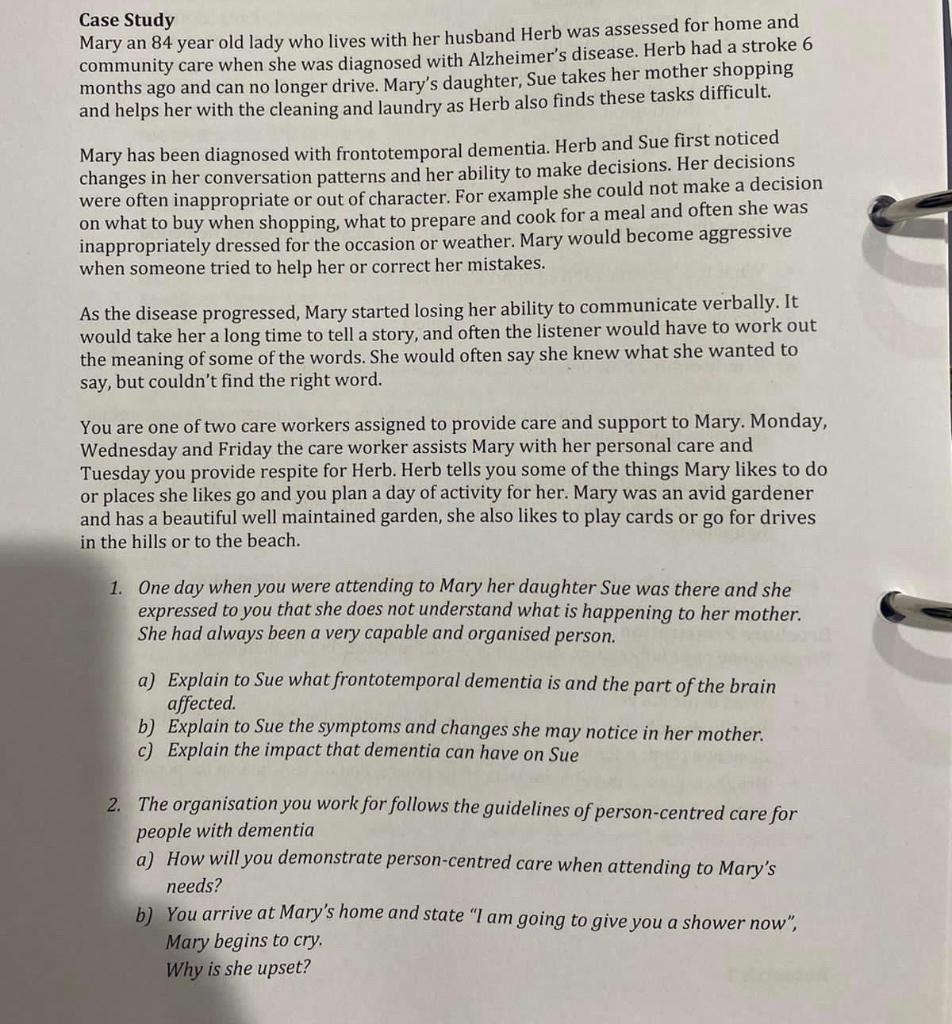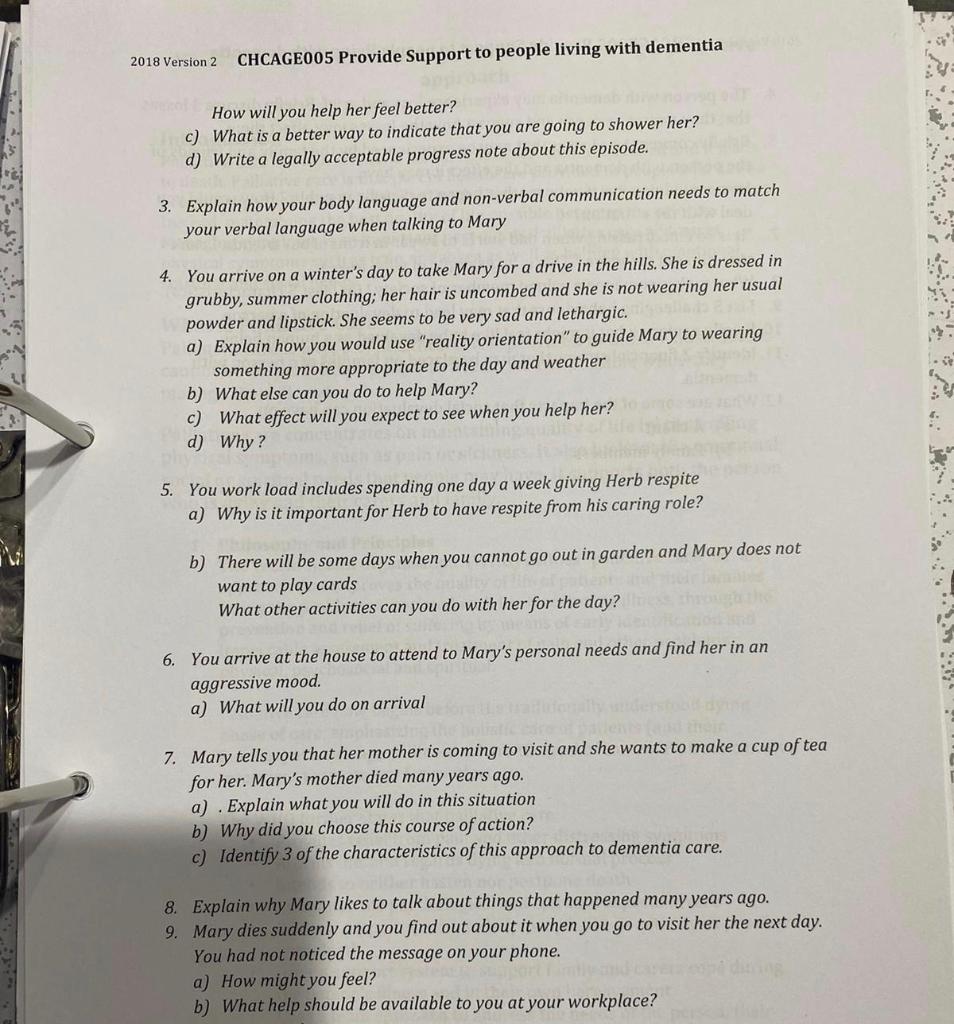Transcribed Image Text from this Question
Case Study Mary an 84 year old lady who lives with her husband Herb was assessed for home and community care when she was diagnosed with Alzheimer’s disease. Herb had a stroke 6 months ago and can no longer drive. Mary’s daughter, Sue takes her mother shopping and helps her with the cleaning and laundry as Herb also finds these tasks difficult. Mary has been diagnosed with frontotemporal dementia. Herb and Sue first noticed changes in her conversation patterns and her ability to make decisions. Her decisions were often inappropriate or out of character. For example she could not make a decision on what to buy when shopping, what to prepare and cook for a meal and often she was inappropriately dressed for the occasion or weather. Mary would become aggressive when someone tried to help her or correct her mistakes. As the disease progressed, Mary started losing her ability to communicate verbally. It would take her a long time to tell a story, and often the listener would have to work out the meaning of some of the words. She would often say she knew what she wanted to say, but couldn’t find the right word. You are one of two care workers assigned to provide care and support to Mary. Monday, Wednesday and Friday the care worker assists Mary with her personal care and Tuesday you provide respite for Herb. Herb tells you some of the things Mary likes to do or places she likes go and you plan a day of activity for her. Mary was an avid gardener and has a beautiful well maintained garden, she also likes to play cards or go for drives in the hills or to the beach. 1. One day when you were attending to Mary her daughter Sue was there and she expressed to you that she does not understand what is happening to her mother. She had always been a very capable and organised person. a) Explain to Sue what frontotemporal dementia is and the part of the brain affected. b) Explain to Sue the symptoms and changes she may notice in her mother. c) Explain the impact that dementia can have on Sue 2. The organisation you work for follows the guidelines of person-centred care for people with dementia a) How will you demonstrate person-centred care when attending to Mary’s needs? b) You arrive at Mary’s home and state “I am going to give you a shower now”, Mary begins to cry. Why is she upset? 2018 Version 2 CHCAGE005 Provide Support to people living with dementia How will you help her feel better? c) What is a better way to indicate that you are going to shower her? d) Write a legally acceptable progress note about this episode. 3. Explain how your body language and non-verbal communication needs to match your verbal language when talking to Mary 4. You arrive on a winter’s day to take Mary for a drive in the hills. She is dressed in grubby, summer clothing; her hair is uncombed and she is not wearing her usual powder and lipstick. She seems to be very sad and lethargic. a) Explain how you would use “reality orientation” to guide Mary to wearing something more appropriate to the day and weather b) What else can you do to help Mary? c) What effect will you expect to see when you help her? d) Why? 5. You work load includes spending one day a week giving Herb respite a) Why is it important for Herb to have respite from his caring role? b) There will be some days when you cannot go out in garden and Mary does not want to play cards What other activities can you do with her for the day? 6. You arrive at the house to attend to Mary’s personal needs and find her in an aggressive mood. a) What will you do on arrival 7. Mary tells you that her mother is coming to visit and she wants to make a cup of tea for her. Mary’s mother died many years ago. a) . Explain what you will do in this situation b) Why did you choose this course of action? c) Identify 3 of the characteristics of this approach to dementia care. 8. Explain why Mary likes to talk about things that happened many years ago. 9. Mary dies suddenly and you find out about it when you go to visit her the next day. You had not noticed the message on your phone. a) How might you feel? b) What help should be available to you at your workplace?
(Visited 3 times, 1 visits today)





